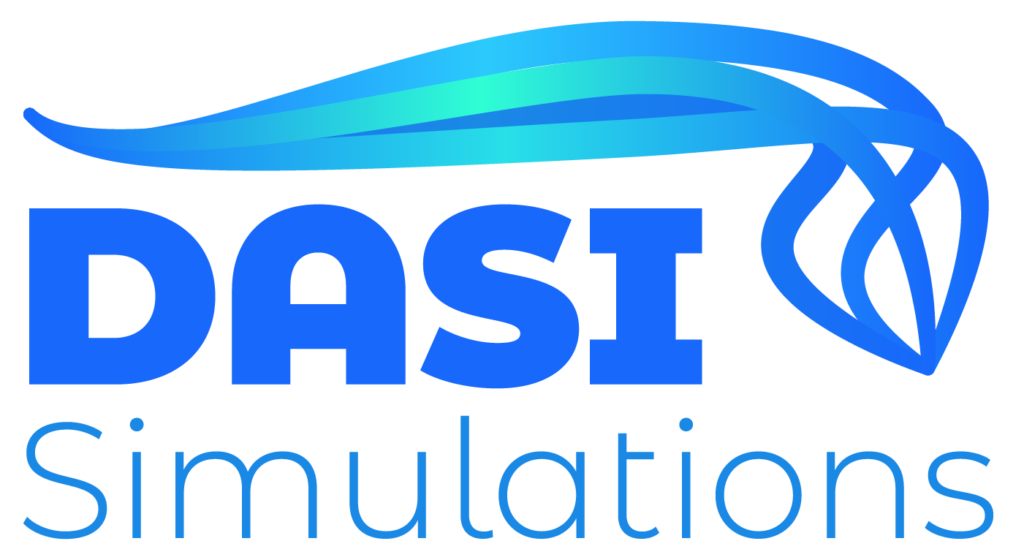Blog
Georgia Tech Professor’s AI-Driven Predictive Modeling Startup Receives FDA Approval for Life-Saving, Personalized Cardiac Care
Heart disease is a prevalent, global health issue, yet current heart surgery planning is hindered by outdated tools and techniques that lack accuracy and efficiency.
Physicians lack the ability to make precise, individualized cardiac structure measurements or predict potential complications. One company is changing this with technology licensed from Georgia Tech.
DASI Simulations, a startup founded in 2020 by Georgia Tech professor Dr. Lakshmi Dasi and Teri Sirset, aims to address this issue with predictive artificial intelligence (AI) that enables personalized and optimized treatment. With DASI Simulations technology, patients who were previously considered inoperable due to their complex disease state are now candidates for lifesaving trans-catheter intervention.
Backed by Georgia Tech’s VentureLab, the company received full U.S. Food and Drug (FDA) approval for the world’s first predictive modeling software for valve replacement—Precision TAVI—in May 2023. Given this important step in commercializing the technology, the startup’s founders hope it will become the new standard of care.
The technology: Changing the way treatment planning decisions are made
The FDA-approved software creates “digital twin” of the patient’s heart and then provides physicians what will happen to it when prompted with treatment scenarios, thereby fundamentally changing the way treatment planning decisions are made.
The complex planning process currently involves manual mark-up of dimensions and identification of cardiac structures from medical images such as CT scans—a time-consuming method that is highly subject to human error. To save time, most centers have allowed the device representatives perform this task. Such an approach transforms this critical task into a sales process, since the representatives make a commission if they are successful in making that sale.
DASI Simulations has developed a pipeline of technology that includes AI to make accurate and unbiased measurements while saving time. The software analyzes patient data, providing information about the patient’s unique cardiac anatomy. This “digital twin” allows physicians to pre-surgically visualize and predict the heart’s physical interaction with various implantable devices.
Advanced planning strategies facilitated by the software’s predictive AI could optimize decision making, not only for determining the appropriate type of surgery but also in selecting the ideal device type, size, and positioning. Creating accurate measurements removes the potential for human error and eliminates bias in device choice—the heart valve replacement device selected meets a patient’s specific anatomy with no regard to brand.
The licensee: Commercializing personalized heart valve modeling for risk reduction
DASI Simulations was founded to bring predictive AI software to market. In addition to recently receiving FDA approval for its modeling software, the company has a highly distinguished medical and scientific advisory board, 10 patents pending, and more than 500 cases modeled with zero failure.
The company’s specialized technology has the potential to reduce the risk of common complications in heart surgery, including ruptures, obstructions, leakages, abnormal rhythm, and clots. Such improvements could lead to fewer interventions, significant savings in health care costs, and higher quality of life for patients. For hospitals, this means improved operating efficiency and cost savings from reduced complications and length of stay. For physicians, this means no surprises in the operating room or cardiac catheterization lab with a treatment planning process grounded on validated predictive tools.
Because the technology was developed over time, the startup executed licensing agreements with four institutions: Georgia Tech, Emory University, Ohio State University, and Piedmont Hospital.
The impact of technology transfer: Individualizing surgical planning to improve patient outcome
Thanks to this collaborative technology transfer, the life-saving technology is currently utilized in more than 53 hospitals in the United States, including 7 of the top 20 cardiac hospitals. The predictive technology is allowing physicians to simplify the critical decision-making process in determining the best surgical approach for individual patients.
“One surgery at a time, our technology helps avoid complications and repeated interventions, enables lifelong planning for optimal structural heart care, and has the potential to save billions in unnecessary costs from preventable complications,” said Dr. Dasi.
Support from Georgia Tech’s Office of Technology Licensing enabled a rapid technology transfer process, and VentureLab facilitated introductions with venture capital companies and other entrepreneurs to build a syndicate of investors. Visibility from this support led to DASI Simulations being selected as a member of MedTech Innovator’s 2023 Accelerator Program, a highly prestigious distinction.
“Georgia Tech has done a remarkable job in the commercialization process, and we have been fortunate with the support we’ve received from them,” noted Ms. Sirset.
The future: Predictive AI becomes the standard of care
The company continues to add new hospitals to its roster and cultivate additional investors. To complement and expand upon the existing technology, forthcoming new tools include a mobile assessment application for physicians and a patient-centric application to aid with heart disease management.
Over the next few years, Dr. Dasi envisions creating a series of Software-as-a-Service (SaaS) tools that will allow pre-surgical assessments for all heart structures, pediatric congenital abnormalities, and neurovascular and endovascular conditions. The ultimate goal is to have the predictive software integrated as AI guidance even for robotic heart surgery, but the impact of this life-saving technology will continue to expand as the software is implemented globally in hospitals and virtual clinical studies.
As Dr. Dasi said, “The real benefit here is science in the hands of physicians so they can make data-driven decisions as opposed to clinical intuition-based guesswork.”
Categories
Upcoming Events
- There are no upcoming events.
